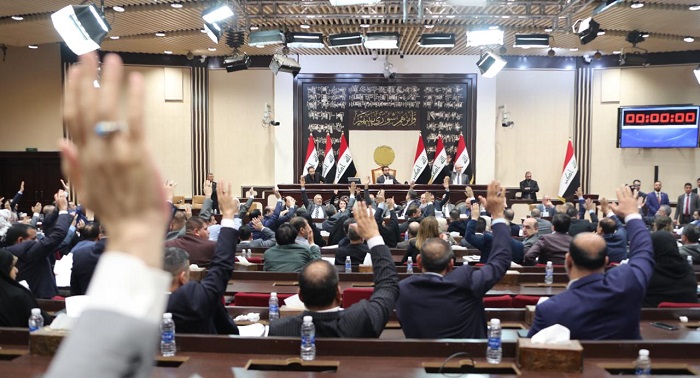Details of amending the Iraqi constitution revealed

Shafaq News / Al- Iraqiya Government News Agency revealed the most prominent amendments to the constitution.
The protests in the country have prompted parliament to move towards amending the Iraqi constitution, in a first step since it was passed 15 years ago.
The agency quoted an unnamed parliamentary source as saying, "The parliament has formed a constitutional committee that included 18 deputies and decided on a number of amendments to the constitution, including choosing a semi-presidential system, that is, the public’s participation in choosing the president of the republic and assigning a prime minister or choosing the prime minister," as well as "canceling Governorates councils and electing the governor by direct secret ballot. "
The source explained that the amendments included "granting the provinces more powers, especially financial, legal, administrative, lands and projects", as well as "the separation of duplication of powers between the center and the provinces, and more clarification regarding federalism and the validity of the region and setting controls for it, especially in the security, administrative, financial, oil and gas and border ports." .
The amendments also stipulated “getting rid of the three governorates’ veto and adopting the approval of two-thirds of the members of the parliament for future constitutional amendments as the Federal Service Council shall be responsible for the appointments of a general manager and below according to the controls, in addition to “determining the positions covered by the dual nationality of the three presidencies, ministers, judges and senior officers.”
The amendments also included decisions including "stipulating respect for the citizen and providing him/her with dignity inside Iraq, protecting the citizen abroad and reciprocity for other countries", in addition to "preventing ministers, deputies and officers from meeting foreign ambassadors or visiting other countries and meeting foreign officials without the knowledge of the prime minister and the embassy of Iraq there as well as to prevent non-stakeholders from dealing with foreign policy, making statements, or conducting negotiations on them. "